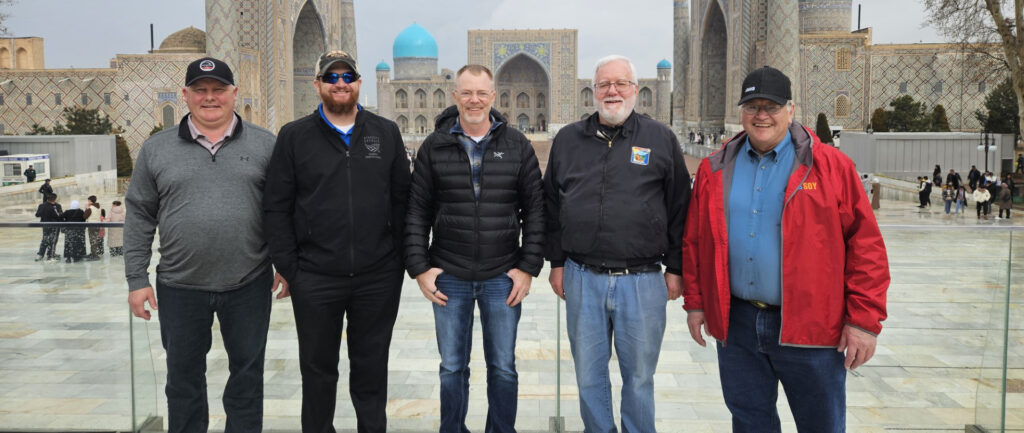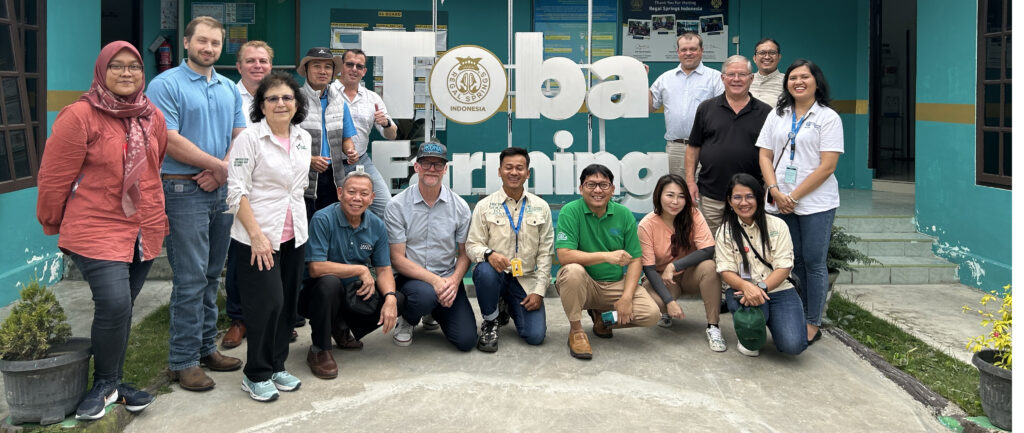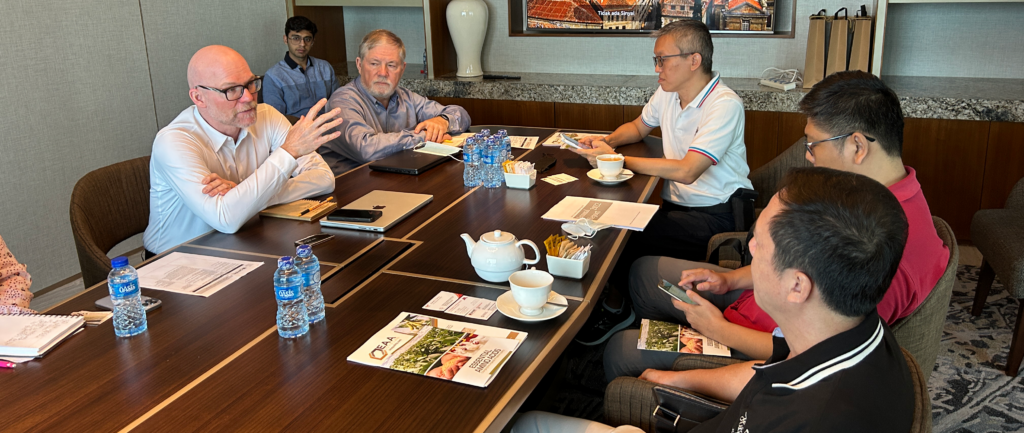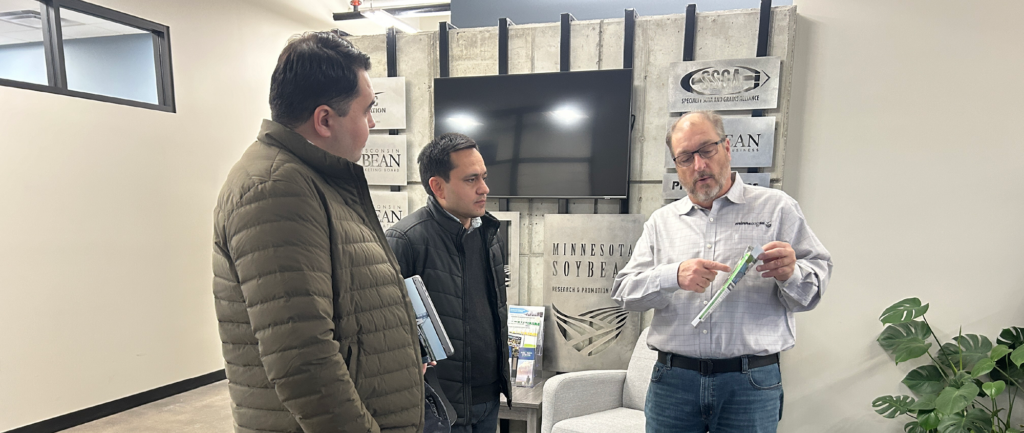The U.S. soy industry is working together to maximize Agricultural Trade Promotion (ATP) program funds from the USDA to support both short-term and long-term strategies that will build new markets for U.S. soybean producers. The focal point of this strategy is to make investments into new markets where there is significant future potential due to factors such as large populations, improving economic conditions and low protein consumption.
In the summer of 2019, the U.S. Soybean Export Council (USSEC), together with the Minnesota Soybean Research & Promotion Council (MSR&PC), Nebraska Soybean Board, North Dakota Soybean Council, and the South Dakota Soybean Research and Promotion Council organized the PNW Soy Bazaar. More than 50 international delegates from over 10 countries took part in this mission that demonstrated one of the greatest advantages of buying U.S. Soy – the United States’ superior transportation system and infrastructure. The delegates traced a soybean’s journey from the Upper Midwest to the PNW, touring soy farms, export facilities, and terminals. In addition to gaining a strong understanding of U.S. soy’s logistics, the delegates learned more about high quality U.S. soybeans.
U.S. Soy has continued to follow up with these current and potential customers. In February 2020, USSEC coordinated a trade mission to Bangladesh. Darren Kadlec, North Dakota farmer and USSEC/United Soybean Board (USB) director, and Lance Rezac, Kansas farmer and USSEC/USB director, joined a team from the Iowa Soybean Association and other soy partner representatives, engaging with soybean buyers, purchasers and other stakeholders representing the soybean value chain. The trade delegation also had meetings with Ambassador Earl Miller and Tyler Babcock, the Foreign Agricultural Service (FAS) ag attaché.

Among other visits, the U.S. soy trade delegation toured the City Crush Organization’s processing facility near Dhaka, which was unloading and processing U.S. soybeans originating from the PNW while the group toured the facility. CCO employees expressed a strong commitment to U.S. Soy, claiming the facility exclusively crushes U.S. soybeans and prefers U.S. quality, saying it “has better protein and oil content for ease of (the) refining situation.” CCO traces its support from the learnings that its representatives gained while participating in last summer’s PNW Soy Bazaar.
And these efforts are bearing fruit. Thus far, at least three shipments of U.S. Soy, valued at approximately $70 million, to Bangladesh are a direct result of the PNW bazaar.
Looking forward, USSEC will continue to leverage these types of relationship-building opportunities to connect buyers and sellers around the world in several markets to promote and amplify U.S. soy’s competitive advantage.







